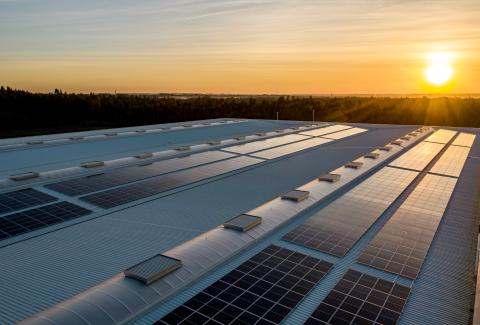Rooftop solar lagging: why India will miss its 2022 solar target
Download Full Report
Key Findings
India is projected to miss its target for 2022 of having 100GW of installed solar capacity by about 27%, largely due to slow uptake of rooftop solar.
On the current trajectory, India’s solar target of 300GW by 2030 will be off the mark by about 86GW.
Headwinds ranging from pandemic-induced supply chain disruption to deeply rooted policy restrictions have impeded the growth of India’s rooftop solar and open access (offsite solar power) installations.
This report proposes short- and long-term measures to get India back on track to meet solar targets.
Executive Summary
India is projected to miss its target for 2022 of having 100 gigawatts (GW) of installed solar capacity by ~27%.
This report anticipates that by December 2022 there will be a shortfall of 25GW from the 40GW rooftop solar target, and 1.8GW from the 60GW utility-scale solar target, indicating the need for a concerted effort towards expanding rooftop solar.
On the current trajectory, India’s solar target of 300GW by 2030 will be off the mark by about 86GW.
The anticipated 27GW shortfall from the 2022 solar target can be attributed to multiple challenges including regulatory roadblocks; net metering limits; the twin burdens of basic customs duty (BCD) on imported cells and modules and issues with the Approved List of Models and Manufacturers (ALMM); unsigned power supply agreements (PSAs) and banking restrictions; financing issues plus delays in or rejection of open access (OA) approval grants; and the unpredictability of future OA charges.
The report proposes short- and long-term measures to get India back on track to meet solar targets.
Short- term
- Uniform policies to apply nationally for at least the next five years.
- Consistent regulations for net metering and banking facilities, also to apply nationally.
- Restrictions on banking revoked at least until rooftop and OA state targets have been achieved.
Long-term
- Stricter enforcement of the renewable purchase obligation (RPO).
- Improved financial health, and potentially privatisation, of distribution companies (discoms).
- Reduced cross-subsidy surcharge (CSS) for commercial and industrial (C&I) consumers.
- A capital subsidy for Battery Energy Storage Systems (BESS).
















